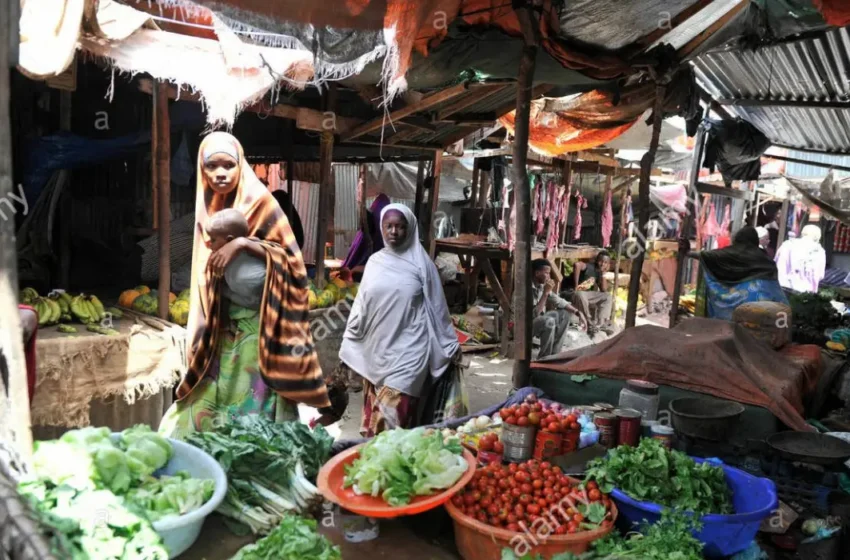
Community-Led Development in Somalia: How $500K Crowdfunding Sparked a Revolution
Community empowerment is transforming the development scene in Somalia as the grassroot projects enable communities to spearhead their own improvement. Leading among them is the Co-Funding System (CFS) of the International Organization for Migration (IOM) that has triggered transformational change by matching funds raised by the communities.
This model has undertaken 42 projects in 22 districts covering more than 580,000 Somalis directly across the nation by the end of 2024. Populations and communities abroad invested $500,000 that has been multiplied by the IOM matching system to the tune of 2.8 million to show that the local ownership drives sustainable development.
The Mechanics of Community-Led Funding
IOM’s Co-Funding System: A Blueprint for Empowerment
The CFS functions on a straightforward yet robust principle: communities define their own priorities, mobilize startup capital, and IOM offers matching grants. This methodology turns the conventional top-down model for aid on its head by putting decision-making authority in local control. Mohamed Mohamud Hussein, an IOM officer, clarifies: “We consider proposals that are well-conceived, transformative, and support our mandate of ownership and sustainability.” The system’s success has propelled it to become one of Somalia’s most creative tools for recovery since its 2021 introduction.
Diaspora Engagement and Digital Platforms
The international community of Somalia is the significant source of finance to the projects in the society. Transparent crowdfunding initiatives such as water infrastructure is possible on platforms like Bulshokaab that was set up by Action Against Hunger and local NGO Shaqodoon. Communities in Hudur contributed US3 13,447 to boreholes and shallow wells and to this amount, Action Against Hunger contributed US3 28,427.50. Equally, African Crowdfunding (ACF) uses a diaspora network to fund SMEs, which is in lieu of the lack of traditional financing arrangements because of the strained financial legislation in Somalia.
Transformative Projects Driven by Communities
Abudwaq: Solar Energy and Water Access
In Abudwaq, Galmudug State, university students Iftin and Aminaa exemplified community agency. Facing dangerous commutes due to power outages, they mobilized 19 peers to crowdfund $10,000 for solar infrastructure. IOM matched their effort and added $50,000, resulting in 24/7 solar power for their university, lighted roads, and a connected borehole providing free water to 50,000 residents and pastoralist communities. “This project wasn’t originally in our plans,” notes Mohamed Mohamud Hussein, “but its community-led design made it irresistible.”
Education and Social Cohesion Initiatives
In Farjano—a settlement for internally displaced persons—a CFS-funded school enabled free education for 300 children. Shamso, a mother of three, shared: “For the first time, all my children could attend school.” Meanwhile, Mataban’s youth stadium became a unity catalyst. Mustaf, a resident, observed:
“Groups that avoided each other now gather here. It’s not just for sports—it’s where our community heals.”
Scaling Impact Through Governance and Policy
Nabadaynta Townhalls: Localizing Security and Justice
The UK-funded Nabadaynta Soomaaliya Programme expands community-led governance through “Townhall” dialogues. Following successes in Kismayo and Baidoa, forums launched in Doolow and Xudur in June 2025. These gatherings unite residents—including marginalized groups—with officials to co-create security and justice solutions. British Ambassador Charles King emphasizes: “Putting communities at the heart of peacebuilding ensures sustainable change.”
International Partnerships for Resilience
Global institutions now prioritize community-centered approaches. The Adaptation Fund approved a $10 million project for Somalia’s “Green and Resilient Ecosystems,” operationalizing the Great Green Wall Initiative. Meanwhile, the Fourth International Conference on Financing for Development (FFD4) in Sevilla spotlights Somalia’s model as a blueprint for fragile states.
Voices from the Ground and Beyond
Fatuma Gaitho, a prominent advocate for African development, highlighted this revolution in a recent interview with BBC Africa: “Somalia’s crowdfunding model proves that when communities lead, solutions outlast crises. This isn’t aid—it’s self-determination in action.” Her perspective underscores how Somalia’s experiment has captured global attention as a paradigm shift in development finance.
While innovative, these initiatives face hurdles. Fragility and climate shocks—like the 2023 drought—demand flexible funding. The Somali Resilience Program (SomReP) addresses this by training communities in crowdfunding management, ensuring transparency through local committees. As Vanessa van den Boogaard (ICTD researcher) notes: “Collaborating directly with communities strengthens state legitimacy where formal systems are weak.”
The CFS’s expansion to nine ongoing projects signals growing momentum. With diaspora contributions increasing and international partners adopting this model, Somalia’s community-led revolution offers a template for turning local agency into systemic change.


